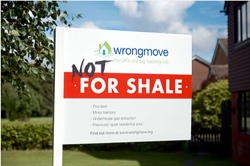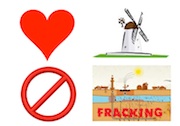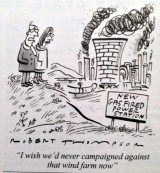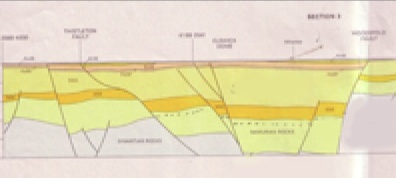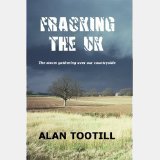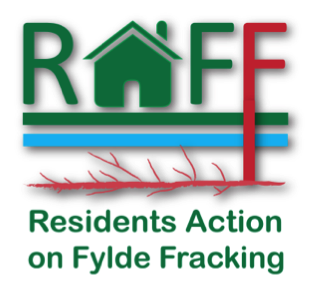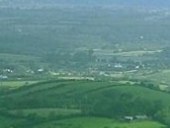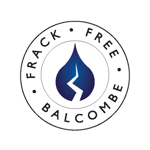The Impact of Shale Gas on Energy Markets – Energy and Climate Change
Friday saw the Parliamentary Committee on Energy and Climate Change release its report entitled
The Impact of Shale Gas on Energy Markets – Energy and Climate Change
Over at Fracking Digest they have done a great job at summarising the meat of the report for easier digestion. Having read the report ourselves we can confirm that it is not a particularly satisfying experience unless you are a supporter of the crazy “dash for gas” being promoted by the Treasury.
Tory Energy Minister Michael Fallon sums this up. He labelled the report a “helpful analysis” on shale gas, which he said had “potential to play a role in our energy security and to create valuable jobs.” Tim Yeo, the Committee’s Chairman can consider his job well done then as he obviously set out to be as “helpful” as he could to Mr Osborne, without appearing to be a complete tart.
The report is a string of statements of the obvious linked with so many conditional statements that it is almost totally meaningless.
All we can deduce is that gas isn’t going to be cheap, OFFUGO is a terrible idea (even Egan admits in his evidence that the poacher can’t be the gamekeeper), and the government wants this so badly that a weak committee will deliver it to them on a plate. Knighthoods all round no doubt.
Here is Fracking Digest‘s take on the report:
Introduction
My comments below are based on the report summary only – it will take a little while to digest the full report and its evidence – these are available for download from the Committee website at -
and the conclusions/recommendations here
Shale Gas Estimates
The conclusions state that the Government should exercise caution over shale gas estimates because of uncertainty and “confusion over definitions”. The Committee recommend that the Government should talk about the figures in terms of what means most to the public, namely recoverable resources. This, of course, begs the question of how one works out from guesstimates of total resources to what percentage is extractable.
Unfortunately for the case against any fracking, the Committee suggest that in order to determine reliable estimates we need practical production experience.
The Committee report is therefore encouraging the Government to go ahead with not only initial exploration, but test production. This is one of the most damaging outcomes of the report.
The Committee again refers to the fact that there are substantial shale gas reserves offshore, estimated at many times those onshore, and recommends a urgent action to encourage exploration of this possibility. This is a strong argument, as the Committee recognises, in that it would avoid public concern about and opposition to onshore development. It does not tackle the objections that will be raised on wider environmental and climate change grounds.
Public Perception
The Committee appears to believe that opposition to fracking is based on “scare stories” which the Government must counter by a “robust factual response”. This ignores the fact that the Government has no robust science to go on. It also fails to suggest that industry propaganda needs similar rebuttal. This week’s Advertising Standards Authority’s upholding of claims against Cuadrilla have demonstrated that the industry must be “robustly” challenged. The government should in my opinion not reject anti-fracking arguments without strengthening rules to prevent industry promotion. Yet the Committee encourages the generation of such industry propaganda by indulging in “community engagement”.
The Committee suggest that the new OUGO should “provide advice and support” to local communities threatened by fracking. It would be interesting to see how that could avoid becoming yet another industry promotional tool, and indeed the Committee express the concern that the Office should not be seen as too closely linked to industry. This is not the point, how it is “perceived”. It should be totally severed from industry in practice.
The Committee’s main recommendation which will promote debate is how to reward local communities for having the frackers put their countryside at risk. They suggest substantial material benefit should accrue. Cuadrilla have already said that the industry should not pay these “benefits”, so it will be interesting to see how the Government responds. It would be amazing if Government agreed to dip into the national pocket. In any event the whole plan amounts to sheer bribery. If the Government can 100% guarantee no danger will be caused by fracking why on earth should the local community be recompensed? Why can the local community not enjoy the economic benefit that the frackers promise?
There is a reasonable conclusion to be made from this. The Committee and the Government are not persuaded of local economic benefit demonstrably coming the way of fracked communities. And they do fear that environmental damage might occur.
Regulation
It was not the purpose of this report to go into detail of regulation, and the Committee make little comment. But what is significant is that whilst later advocating strong regulation they say ”We welcome the Government’s attempts to minimise the burden on companies…”
and again they make the point that OUGO should be seen to be avoiding conflicts of interest.
Tax
The Committee notes briefly that the Government should make an assessment of whether tax breaks should continue to be required during commercialisation. Another coded warning to the Government maybe that tax breaks should not be necessary at all, and to the rest of us that fracking will happen.
Gas prices
The Committee conclusions try hard to avoid saying gas prices will rise regardless. They only express reservations that gas prices may not fall, either because of imported shale gas from the US or by home production. The report is already out-of-date in that agreements have already been signed for the import of US shale gas.
The report says it is “too early to say” whether domestic production of shale gas in the UK could result in cheaper gas prices in the UK. It will take a reading of the report detail and evidence to see why the Committee can not come to the firm conclusion that all other recent reports on the subject have come to, that thinking consumer gas prices will fall is pie in the sky thinking.
The main reason the Committee expresses so much uncertainty about prices and does not come down on one side of the fence seems to be because they use this uncertainty to encourage the go-ahead for further shale gas exploration. They say this quite explicitly -
“For all these reasons the Government should encourage exploration to establish whether significant recoverable reserves exist.”
Climate Change
The Committee recognises that US shale gas development has had the effect of not only reducing the US’s own emissions but has increased worldwide emissions by exporting its coal.
As far as the UK is concerned the Committee says the Government should complete its studies into shale gas impact on emissions as soon as possible. But the conclusion is clear – unchecked development of gas-fired generation, which shale gas will facilitate, might (“might” – yet another occasion where the Committee is incredibly mealy-mouthed) be incompatible with meeting the UK’s climate change obligations.
The Committee is frustrated that CCS has not developed. No doubt they and the Government will also be frustrated when development of CCS is proposed, and it is realised that pumping carbon dioxide into the ground at high pressure is also geologically invasive and likely to be viewed with apprehension by the public. The Committee pays lip service to the real alternative of renewables by welcoming the Energy Bill, which they say, optimistically, will create a “favourable investment climate” for low-carbon technologies (ie NON-GAS!)
Security of Supply
The Committee welcome the invasion of the fracking industry into academia by praising the partnership between Cuadrilla and the University of Central Lancashire. They encourage the Government to encourage more like this, to develop fracking skills. A clear indication the Committee expect to see fracking thrive.
They do, however, recommend that the Government should not rely on shale gas contributing to the UK’s energy system when making strategic plans for energy security. Again – for the third time – they seek reassurance that OUGO doesn’t have a conflict of interest when advising the government.
My Conclusions
As I suggested above, my first impression is that this is a very mealy-mouthed set of report conclusions. The main flavour that comes across is that the Committee feel obliged to say that shale gas exploration should continue (despite climate change implications). And that the rest of the recommendations are working on the assumption that exploration, test production and full production are “in the pipeline” whatever the Committee says.
Cuadrilla’s Reaction to the ASA ruling on their newsletter
We thought the reaction from Cuadrilla was worthy of a post all on it’s own. Let’s take a look at how they reacted (and also how they didn’t)
Here is what their CEO Francis Egan had to say, as reported in the Blackpool Gazette.
We would love to be able to direct you to the on-line version, so that you could see it for yourself but, for reasons which we don’t fully understand, the Gazette seems to be the only newspaper which carried this story but which did not also include it in their on-line version.
First of all, let’s be absolutely clear that the ASA did NOT in any way confirm that hydraulic fracturing can be done safely, and to suggest that they did is totally misleading. You might think that having had his company caught out misleading the public Mr Egan might be have been a bit more careful with his comments, but it looks as though they can’t really help themselves from coming out with this sort of distortion of reality.
Bizarrely, having stated this, he then goes on to totally invalidate any worth that statement might have had, even if it were the truth, by saying “We do believe the ASA should have consulted scientific experts before reaching it’s conclusions”.
It’s interesting that Mr Egan seems to presuppose that they didn’t do so. I’m not sure what they did during the 9 months or so that this complaint has been under investigation, but it is reasonable to assume that they spent a fair amount of time investigating and comparing the scientific evidence in order to feel able to adjudicate here.
His final comment is also misleading as the ASA did not in fact “validate” any points. It merely didn’t accept our complaints. The two things are not the same by any stretch of the imagination, but it IS amusing to see that Mr Egan is prepared to claim “validation” from these people who he accused earlier of not knowing their science when it suits him.
In at least one case the ASA’s refusal to accept a complaint was rather perverse. Cuadrilla argued that the development wouldn’t be dense and unattractive on the basis that their licence area was 1200 Km2 and would only have 10 well pads on it. We provided evidence from Cuadrilla’s own website that a:) under their licence they had to return half of the licence area to the government and b:) Cuadrilla were in fact proposing up to 80 wells but the ASA told us
a) Yes, we are aware of the mandatory relinquishment of 50%. We are still minded to base our recommendation on CRL’s statement that the well pads would be spread across the entire 1200 km2 area.
b) Yes, we have based our recommendation on the information provided to us by CRL and not on the figures from their website which show the number of well pads to be 80 at the higher end.
We can’t pretend to understand their logic , but unlike Francis Egan we won’t be throwing a hissy fit about it.
Back to Cuadrilla’s responses…
In the Guardian we read that
Cuadrilla strongly disputes many of the ASA’s criticisms, which will be subject to appeal. For instance, the ASA said that the company could not claim its “fracturing fluid does not contain hazardous or toxic components”, because although the company has used only water, sand and a non-toxic friction-reducing chemical to date, it could use other substances in future. Cuadrilla called this “absurd and pedantic”.
Appeal? Cuadrilla have already spent the last 9 months desperately trying to provide evidence to the ASA to neutralise our claims. We wish them good luck with their appeal. We can’t wait to see the results.
And “absurd and pedantic” ??? Oh dear – perhaps Mr Egan isn’t aware of the fact that his own company’s website states that
“Cuadrilla’s fracturing fluid, … along with fresh water and sand includes:
Polyacrylamide friction reducer
Hydrochloric acid
Biocide
Sodium salt
Is it really “absurd and pedantic” to believe what they tell us? Really?
Mr Egan then says
we will be examining the adjudication carefully to see what communication lessons can be learned in future.
Perhaps the simplest lesson he could take from all this is that if you don’t deal honestly with people they will lose trust in you and then you won’t get the “social licence to operate” which you so desperately want.
And finally, rather unbelievably, he says
However, he said it was important that the ASA had ruled that fracking “can be done safely”.
Again – the ASA has done no such thing and to suggest that they have is pretty disrespectful of the role that this organisation plays in keeping communication between businesses and the public as honest as it can.
Having taken all this in we can’t help noticing that Cuadrilla really don’t seem to be taking this very seriously. The best illustration of this, perhaps is the fact that that 2 weeks after they were provided with a ruling that condemned their claim that “Cuadrilla’s fracturing fluid does not contain hazardous or toxic components”, and 2 days after that ruling was made public and reported worldwide, exactly that same claim is still made on their corporate website.
Do they really think this stuff doesn’t matter? Do they think the people of Lancashire are stupid? … or are they simply incompetent?
Strangely the News section of Cuadrilla’s site carried no mention of this latest accolade.
Press Reaction to the ASA ruling on Cuadrilla’s newsletter
It has been interesting to see how far the news of the ASA ruling, which effectively bans Cuadrilla from making certain claims about the safety of fracking, has travelled.
The Guardian was the first paper to publish an article
http://www.guardian.co.uk/environment/2013/apr/24/caudrilla-censured-fracking-safety-claims
Curiously this article suggested (incorrectly) that the ASA had suggested changes to Cuadrilla’s claims
Cuadrilla was also criticised by the ASA for asserting that “we know that hydraulic fracturing does not lead to contamination of the underground aquifer”. That must be changed to: “To ensure that there can be no route for fluid or gas to leak from the shale rock up to the aquifer, we use multiple layers of steel casing sealed by cement.”
That was factually incorrect but the article was sympathetic, pointing out that
The censure by the Advertising Standards Authority will force a significant watering down of some of the company’s claims and is a further blow to Cuadrilla, which has halted fracking at all of its UK sites following a series of setbacks.
Locally the Lancashire Evening Post picked up very quickly on the story
http://www.lep.co.uk/news/business/watchdog-censures-cuadrilla-over-fracking-leaflet-1-5608726
The BBC picked up the article shortly afterwards
http://www.bbc.co.uk/news/uk-england-lancashire-22284340
http://uk.reuters.com/article/2013/04/24/uk-cuadrilla-fracking-advertising-idUKBRE93N0PZ20130424
sent it worldwide so we ended up with coverage as far away as Africa!
http://africanoilandgasnews.com/news/uk-cuadrilla-must-tone-down-fracking-safety-claims-uk-watchdog
We were also pleased to see that the Gasland Facebook page picked up on the story.
Here is a sample of the coverage we got elsewhere.
http://www.utilityweek.co.uk/news/news_story.asp?id=198447&title=ASA+orders+shale+gas+fracker+Cuadrilla+to+mind+its+language
http://www.naturalgaseurope.com/cuadrilla-warned-about-exaggerating-safety-claims
http://www.lse.co.uk/FinanceNews.asp?code=pcpscd9v&headline=Cuadrilla_must_tone_down_fracking_safety_claims_UK_watchdog
http://stopfyldefracking.org.uk/latest-news/the-claim-that-cuadrilla-used-proven-safe-technologies-has-not-been-substantiated-asa/
http://www.frackingdigest.co.uk/
Did the earth move for you?
Last week many column inches were devoted to a new report from Prof. Richard Davies at the University of Durham. The catchily titled Induced Seismicity and Hydraulic Fracturing for the Recovery of Hydrocarbons was picked up the press worldwide in what seems to have become the biggest non-story of the year so far.
As you can see from the above most journalists don’t appear to have read beyond the first line of the abstract which states:
Hydraulic fracturing is not an important mechanism for causing felt earthquakes
This in itself is hardly news. Opponents of fracking have long explained that their concerns about felt seismicity are minimal compared to, for example, the risk of unfelt seismicity affecting well integrity, or the other potential serious impacts on our health, our local economy and our environment.
Cuadrilla’s CEO, Francis Egan predictably welcomed this non-news with the comment “We know that people pay attention to independent, rigorous academic research like this.”
Well hopefully they pay enough attention to the research to read beyond the first line, where they will find that the report also states that:
Fault reactivation due to hydraulic fracturing is well known and readily detected
and
Hydraulic fracturing will probably induce felt seismicity in the future
Interestingly it also points out that
“The fractal nature of earthquakes induced by human operations is not fundamentally different from that of natural earthquakes, and no case has ever been reported where several tens of earthquakes of a given magnitude have been induced without also producing events a magnitude unit larger.”
This is saying that if you create a lot of minor tremors you will almost inevitably create a bigger one. With Cuadrilla’s success rate at generating tremors so far, this outcome looks as though it is rather likely.
Some critics of the study have pointed out that Prof Davies department and institute are funded in part by energy companies, and have questioned the independence of the study as a result. Whilst the emergence of the “frackademia” phenomenon has caused controversy in the States where industry funded “research” has been published before being discredited and withdrawn on several occasions, we feel that Professor Davies is not actually one of the bad guys here.
His research has now been hijacked twice by pro-fracking PR. Firstly the swivel-eyed now ex Energy Minister, John Hayes, misrepresented Prof Davies by saying “The claim that the water used in fracking gets into the aquifer was categorically refuted by the Durham University study earlier this year”. This caused Prof Davies to issue an instant denial as he had in fact said nothing of the kind in any study.
Now, with this report, the media have seized on a piece of fairly trivial non-news to create headlines like “New Report Boosts Case For Safe Fracking” along with quotes like:
Francis Egan, the boss of Cuadrilla Resources, the company leading exploration work under the county’s countryside which caused a pair of tremors in 2011, said it would act as “further reassurance” to those people living close to proposed drill sites.
Given that most of us were not significantly concerned about felt seismicity in the first place this is about as meaningful as saying that the recent report that shows that 50% of Justin Bieber’s Twitter followers are fake ” would act as “further reassurance” to those people living close to proposed drill sites”.
The tactic of telling us what we are worried about and then debunking it is an old favourite – Prof Mike Stephens (an academic we are not so fond of) uses it frequently if rather ineffectually in his public talks to get a cheap laugh.
We hope that the people of Lancashire aren’t as gullible as Cuadrilla seem to hope they are.
Hello Cuadrilla! Is there anybody there?
As many of you will know Cuadrilla make a big thing of their responsiveness to local community issues and their PR company, PPS Group, man a
Community Helpline
0800 170 1115
(24hr message service outside office hours)
We contacted them by email with the following query 10 days ago
In the documents released under Foi and reported by the Guardian it seems Mr Egan wrote to Mr Hayes saying that “additional financial security” had been put in place to “address any concerns about well abandonment commitments”
Would you be kind enough to tell us what this means in real terms.Firstly as this was “additional” what financial security was already in place against well abandonment issues?
Secondly how much money has been set aside in total to “address any concerns about well abandonment commitments” , where is it and how can we be sure it will still be safely available in future (will it be held in escrow somewhere?)
8 days ago we received a response
I just wanted to let you know that I did receive this email, and should have an answer with you tomorrow.
3 days ago we reminded them that we are waiting with bated breath
We are still waiting ……
Do you think they would prefer not to have to answer this question?
And finally… after 10 days…. we got this from PPS group – Cuadrilla’s PR agency
Cuadrilla has more than adequate funding available to provide for security for wells drilled in the current exploration phase. Should an increase in scale during any extraction phase require additional security, Cuadrilla will agree with the appropriate regulatory authority (in this instance DECC) what security it requires
As this clearly suggests that Cuadrilla have in fact set no money aside at all, Mr Egan’s statement that “additional financial security” had been put in place to “address any concerns about well abandonment commitments” looks at best misleading doesn’t it?
Leon Jennings and his search for the truth
Francis Egan, Cuadrilla’s CEO spends a lot of time sounding exasperated that he can’t have a proper debate about shale gas with the people who are against it because, according to him, we are environmental extremists.
He is wrong. We are just ordinary people who are trying to sift the truth from the stream of rubbish put out by his company.
Take this gem from our favourite rabbit in the media headlights, Cuadrilla’s Health and Safety Director,Leon Jennings (yes he’s the one who previously gave us on air back in December an assurance that fracking is 100% safe!)
About 45 seconds into the clip here http://www.bbc.co.uk/schoolreport/21833740 he states unequivocally that
“it’s going to mean that we don’t have to buy gas from abroad. We’re importing over 60% at the moment”
Well, nobody with a brain believes that shale gas is going to mean “we don’t have to buy gas from abroad”,
According to Reuters Research, UK annual gas demand is about 85 and 95 bcm and we currently import about 25 bcm from Norway and 25 bcm from other sources.
Mr Jennings may be right that we currently import just under 60% of UK demand from abroad, but if 60% is to be imported , and even Cuadrilla’s most extravagant claims don’t suggest they could fulfil more than 25% of UK demand (http://www.bbc.co.uk/news/business-20701772 ), it simply makes no sense to suggest that fracking will mean “we don’t have to buy gas from abroad.” Where else is all this gas going to come from? Perhaps we could use some of the hot air which is emitted from the Cuadrilla board of directors?
Seriously though, watching the earnest looking Mr Jennings spouting this rubbish to a couple of impressionable school kids, with apparent absolute conviction, makes Cuadrilla’s communications strategy look tawdry to say the least. I wish we could say we were surprised.
Why do Cuadrilla insist on embarrassing themselves by putting this man in front of the cameras? We’re sure he’s a nice enough bloke but he doesn’t seem to be able stop himself saying things that simply can’t be backed up with reliable evidence when faced with a camera.
We’ve written to PPS group asking them if Cuadrilla are aware of this interview and if they endorse the quote from Mr Jennings. We’ll let you know if they reply.
Interestingly whilst researching this article we looked again at the interview given by Mr Egan to the BBC. (http://www.bbc.co.uk/news/business-20701772 )
In this interview Mr Egan seem to have the same struggle with logic as does his employee Mr Jennings. He says:
“Well if I can talk just about our licence area alone in Lancashire, er, um, our assessment is that there’s about 200 trillion cubic feet in the ground, and we think that’s probably a conservative assessment. Now to put that in context the UK uses about 3 trillion cubic feet per annum, so even if we were only able to recover a tenth of what’s in the ground we’d be able to supply out of Lancashire alone say a quarter of UK gas demand for thirty years. Gas in Britain is a critical part of the energy supply. People talk a lot about gas and electricity, and it’s important for electricity, but electricity only accounts for about a third of gas demand. Virtually every home in the country, in the UK uses gas for heating or cooking and the country’s running out of gas. Right now we import most of our gas In 20 years’ time we’ll be importing all of our gas – increasingly from further afield – from the Middle East and from Russia. So we have a very simple choice. We can choose to develop our own resources, which are shale gas ,of which there is a lot as I just said, or we can continue to import. Now if we choose to import we’ll spend tens of billions of pounds importing it and we’ll get zero in tax revenue. If we develop our own resources we’ll get tens of billions in tax revenue and zero spent on importing. We would prefer the latter. “
So clearly Mr Egan is suggesting here (as did Mr Jennings above) that he believes shale gas can meet all of the UK’s gas requirements and in doing so reduce the import requirement to zero.
Initial resource estimates for the UK by the BGS were tiny compared to Cuadrilla’s recent claims for 200 TCF – about 5 TCF for the Bowland Shale
However, a new UK wide resource estimate, which did suggest that the initial guess was would be increased by a factor of 300 was widely reported by the press but subsequently disowned by the BGS.
It has been suggested that predicting resource sizes based on current research is like sticking a pin into a piece of A4 paper and maintaining you know exactly what is beneath it. The fact is that nobody has any sustainable accurate idea how much gas is really under the Bowland Shale or under the UK as a whole, and there is simply no reliable basis in fact for Mr Egan’s suggestion that by allowing shale gas to be exploited we could meet 100% of predicted future demand for gas and reduce gas imports to zero.
Those of you who are of an analytical frame of mind may also have noticed that he suggests that there is a simple choice between developing shale gas or continuing to import gas. This is a perfect example of the rhetorical device known as the “false choice”, which is often used to steer an argument away from an area which is uncomfortable for the speaker, or which might undermine the rest of his speech.
Clearly Mr Egan would prefer you not to think about the other choices, one of which would be to develop a coherent energy policy, which is not dependent on gas, but which concentrates on developing renewables. This option would generate far more local employment, would help rather than hinder the UK in meeting its greenhouse gas emissions obligations, would also generate billions in tax revenues, but would not need the mass industrialisation of our area.
Offered a proper choice “we would prefer the latter“
Lights Out ????
The continued unusually cold weather conditions also prompted so-called “experts” to renew their scaremongering about Britain’s gas running out. We were given two weeks of continuing cold weather before rationing was implemented.
Earlier in the week OFGEM had reported that the ‘Big Six’ energy companies will make a record profit in 2013 – despite the cost of energy on the wholesale market dropping.
Two days later the CEO and MD of one of the big six – SSE – were raising the spectre of the “lights out” scenario, in an obvious attack on the government and its failure to implement a clear energy strategy.
The industry was not, however, slow to muscle in on an opportunity and add to their profits when on the 15th a pipleine problem between Belgium and the UK, although temporary, forced wholesale prices up by 50%, according to the Telegraph, to a record high, before settling back down. The paper reported that Britain had less than 36 hours of gas reserves remaining.
Apart from remarking that this sort of report (23rd March) is inaccurate, I suggest this saga indicates the central problem. That the current government’s strategy is overdependent on gas, and that it has failed even there to ensure security of supply (Britain exports a substantial amount of its gas, and does not have the storage capacity expected to accompany gas dependence – France and Germany are said to have storage capacity for 100 days of demand, whilst Britain has only one fifth of that).
The government, and the National Grid, were quick to counter the suggestions that gas supplies would run out, or need rationing.
This article is syndicated from the http://www.frackingdigest.co.uk/ web site and is reproduced with thanks.
Did you hear the joke about fracking and jobs
We keep hearing it – Cuadrilla repeat it at every turn because they know that it is one of their routes to gaining community acceptance.
We, and many others have questioned the promised employment boom on the basis that whilst a few temporary local jobs would of course be created (Cuadrilla suggest as many as 1,700 for as long as ten years), there are many more jobs in tourism and agriculture, for example, that could be put at risk.
Now a report on a new study in Ohio validates those fears It seems that whilst fracking does temporarily increase sales receipts in a fracked area, this doe NOT translate itself into any growth in jobs.
As Tish O’Dell, co-founder of the group Mothers Against Drilling in Our Neighborhoods (MADION) in the Cleveland suburb of Broadview Heights, said:
“the number of jobs created by fracking should be measured against the possible impacts on industries including farming, dairies and tourism. If you were going to do a really serious study you would look at these things,” she said. “If water is contaminated and fish die, what are the fishermen going to do? If you have parks where people go for peace and quiet, what happens when you turn it into an industrial landscape? If you have an organic dairy and the soil is polluted, what does that mean? These are all valid questions.”
The Columbus Despsatch reported the Ohio Governor,John Kasich, as saying:
“You could have a situation where we are not getting the jobs, [the oil and gas companies are] taking the resources, and all their profits and they’re heading home,” Kasich said. “That is not acceptable to me. Now, we don’t have the conclusive evidence that this is happening yet, but I want you all to know, and I want the companies to know that this is an extremely serious matter, and we expect them to be responsive to the people of this state.”
So next time you hear the one about the jobs, and wonder why some peoples’ laughs sound a bit hollow, you now know why.
Your Involuntary Investment in Shale Gas
One of the little discussed issues around the recent announcement that the government is going to throw tax breaks at an industry which insists it doesn’t actually want or need them (see http://www.refracktion.com/index.php/fracking-and-the-budget/) is that it turns us all into investors in this business, as it is now OUR money which is going to be so generously given away.
The difference , of course , between us and Lord Browne here is that we don’t have the choice as to whether we want my money spent on helping their exploration (we don’t) and if they were to get lucky, then we don’t stand to make a fortune like he does from his 40% stake in Cuadrilla. Oh yes, the other difference of course is that we don’t have huge influence over government energy policy as an unelected mandarin appointing non-executive directors to government departments like he does, but it would be churlish to suggest that he might have any conflict of interest there wouldn’t it?
So should we be worried about my imminent involuntary investment in the shale gas industry? Well let’s put it this way if you gave us £1,000 and said we could invest it in any business that we chose on the basis of expected risk and reward we wouldn’t touch the fracking industry with a sh*tty stick. At very best it is a hugely risky business. The predictable decline rates, storage issues, the vagaries of the energy pricing mechanisms and the potential lawsuits from the growing number of those harmed by the industry mean that this is an industry which attracts the moth-like investors who get taken in by the shiny lights and then risk getting badly burned once they are in close. At worst it has been described by others as a giant Ponzi scheme. We think that’s a little unfair but we can see where the comparison comes from.
Our page here http://www.refracktion.com/index.php/why-be-concerned/just-how-viable-is-fracking-as-an-industry/ has more information on why we believe this business does not deserve government handouts.
if it is as good as Mr Egan promises us then he doesn’t need tax breaks. If he is exaggerating then our money should not be being thrown at his company in this ludicrous way. The government appears not to have done the “due diligence” that any public company would be expected to do before promising this kind of investment. If they haven’t then they have failed in their responsibility to us, the electorate in general and the people of the Fylde in particular.

